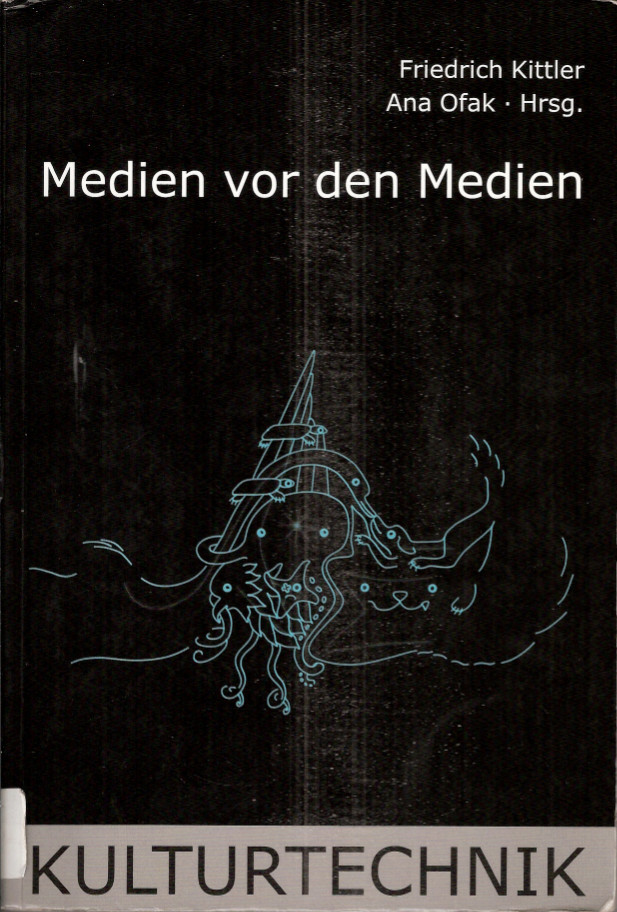Craig Dworkin: No Medium (2013)
Filed under book | Tags: · architecture, art, art theory, attention, body, book, conceptual art, dada, film, fluxus, literature, media, music, painting, paper, phonograph, sculpture, sex, silence, temporality, time, translation, typography
“In No Medium, Craig Dworkin looks at works that are blank, erased, clear, or silent, writing critically and substantively about works for which there would seem to be not only nothing to see but nothing to say. Examined closely, these ostensibly contentless works of art, literature, and music point to a new understanding of media and the limits of the artistic object.
Dworkin considers works predicated on blank sheets of paper, from a fictional collection of poems in Jean Cocteau’s Orphée to the actual publication of a ream of typing paper as a book of poetry; he compares Robert Rauschenberg’s Erased De Kooning Drawing to the artist Nick Thurston’s erased copy of Maurice Blanchot’s The Space of Literature (in which only Thurston’s marginalia were visible); and he scrutinizes the sexual politics of photographic representation and the implications of obscured or obliterated subjects of photographs. Reexamining the famous case of John Cage’s 4’33”, Dworkin links Cage’s composition to Rauschenberg’s White Paintings, Ken Friedman’s Zen for Record (and Nam June Paik’s Zen for Film), and other works, offering also a “guide to further listening” that surveys more than 100 scores and recordings of “silent” music.
Dworkin argues that we should understand media not as blank, base things but as social events, and that there is no medium, understood in isolation, but only and always a plurality of media: interpretive activities taking place in socially inscribed space.”
Publisher MIT Press, 2013
ISBN 0262018705, 9780262018708
219 pages
Interview with the author (Critical Margins)
Author’s lecture at Penn Poetry & Poetics (video, 19 min)
Reviews: Johanna Drucker (Los Angeles Review of Books), Michael Leong (Hyperallergic).
Commentary: Richard Marshall (3:AM Magazine).
Friedrich Kittler, Ana Ofak (eds.): Medien vor den Medien (2007) [German]
Filed under book | Tags: · architecture, cultural techniques, image, literature, media, media theory, mediality, music, music history, philosophy, sound, time

“Das Dazwischen (to metaxy) macht das Sehen und Hören, die Erkenntnis und die Liebe erst möglich – das überliefern uns Texte der Antike. Die Medien prägen so unser Wissen und verstören unsere Sinne seit jeher. In der deutschen Medienwissenschaft ist es fast zur Selbstverständlichkeit geworden, nur heutige oder doch neuzeitliche Medien zu erforschen. Nun geht aber schon der Begriff “Medium” auf die griechische Antike zurück. Eben diesem Sachverhalt sucht der Band Medien vor den Medien gerecht zu werden. Vom Feuertelegraphen zur Ontologie, vom Marienglas zur sakralen Lichtarchitektur und immer wieder vom Ton zum Bild. Da die Medien der Antike zunächst zur Sprache kommen, wird es möglich, Brücken zu anderen Wissenschaftskulturen und in jene Neuzeit zu schlagen, die unseren kurrenten Begriff physikalischer und technischer Medien prägt. Das Buch richtet sich an Philosophen, Kunst-, Kultur- und Medienwissenschaftler.”
Publisher Fink, Munich, 2007
Kulturtechnik series
ISBN 3770542843, 9783770542840
282 pages
via adorno77
Cultural techniques at Monoskop wiki
PDF (53 MB, no OCR, updated on 2020-4-20)
Comment (0)Matthew Fuller, Andrew Goffey: Evil Media (2012)
Filed under book | Tags: · algorithm, art, artificial intelligence, business, code, computing, data, database, event, governance, information, interaction, interface, knowledge, labour, language, machine, management, market, media, media theory, memory, military, networks, philosophy, political theory, politics, power, programming, software

“Evil Media develops a philosophy of media power that extends the concept of media beyond its tried and trusted use in the games of meaning, symbolism, and truth. It addresses the gray zones in which media exist as corporate work systems, algorithms and data structures, twenty-first century self-improvement manuals, and pharmaceutical techniques. Evil Media invites the reader to explore and understand the abstract infrastructure of the present day. From search engines to flirting strategies, from the value of institutional stupidity to the malicious minutiae of databases, this book shows how the devil is in the details.
The title takes the imperative “Don’t be evil” and asks, what would be done any differently in contemporary computational and networked media were that maxim reversed.
Media here are about much more and much less than symbols, stories, information, or communication: media do things. They incite and provoke, twist and bend, leak and manage. In a series of provocative stratagems designed to be used, Evil Media sets its reader an ethical challenge: either remain a transparent intermediary in the networks and chains of communicative power or become oneself an active, transformative medium.”
Publisher MIT Press, 2012
ISBN 0262304406, 9780262304405
235 pages
Review: Nicholas Holm (Media Int’l AU, 2013), Neural (2013).
Evil media on Monoskop wiki
PDF (updated on 2024-4-13)
HTML (added on 2015-8-28)
See also YoHa, et al., Evil Media Distribution Centre, 2013.
Comments (2)

